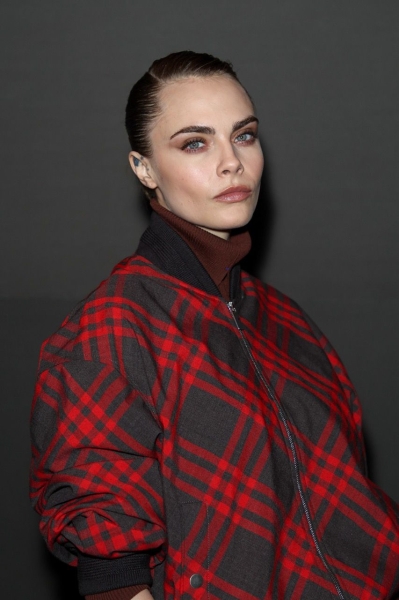Contents
Shaping your brows can totally transform your face. How? Experts agree that brow shape and definition can help the face look more youthful, have a lifting effect on the eyes, and provide a polished makeup vibe, even if the rest of your routine is minimal. However, not all brows and brow shaping methods are created equal. The shape you desire to have, the original shape you have from the start, how often you want to schedule sessions, and how sensitive your skin is, as well as your tolerance for pain and more, can all factor into whether eyebrow threading or eyebrow waxing is best for you.
“Threading is best for individuals desiring precise shaping, those with sensitive skin or lower pain tolerance, and those preferring natural methods,” says Stacie Harding, a training manager at European Wax Center. “On the other hand, waxing is suitable for those prioritizing longer-lasting results and convenience. Ultimately, personal preferences, skin type, and desired outcomes will determine the best method for everyone.”
Below, eyebrow pros explain the difference between eyebrow threading and eyebrow waxing, exactly what each includes, and who they are best for.
What is Eyebrow Threading?

“Eyebrow threading is a hair removal technique that started in India and is popular in the Middle East, South Asia, and the West,” explains Harding. “It uses a twisted cotton or polyester thread to pull out rows of hair from the root, giving eyebrows a clean, precise shape.” So, how exactly does thread remove eyebrow hairs? According to Stevi Christine, a Los Angeles-based brow expert, “The thread is held with the hands and mouth of the technician who will move the thread in a twisting motion,” she explains. “This twisting technique is what grabs and removes the unwanted hair from the eyebrow area.”
An upside of opting for eyebrow threading is that you typically don’t need to spend a long amount of time in a session. “Eyebrow threading appointments tend to be relatively quick and can range anywhere from as short as five minutes or go up to about 20 minutes,” notes Christine. “Eyebrow threading is incredible for the woman on the go who doesn’t have much time and needs a quick clean up; however, the potential downside of threading is as fast as the service is, it’s possible to lack the precision in the execution, meaning the technician may take more brow hairs then needed.”
As for how long your brow game will stay on point, Harding points out that “the frequency of eyebrow threading depends on individual hair growth and personal preference for maintaining a specific shape,” she says. “Generally, most people schedule threading appointments every two to four weeks, depending on factors such as hair growth rate and hair thickness, to maintain well-groomed eyebrows.” Just like with other brow shaping methods, after this time period, your shape may begin to be less defined, and regrowth may become noticeable; therefore, regular maintenance appointments are required.
What is Eyebrow Waxing?
Eyebrow waxing is similar to other forms of waxing on the body as a method of hair removal. However, because it’s on the face and in such a precise area that targets tiny hairs, it requires extra expertise. “Eyebrow threading is a technique that involves the removal of unwanted hair from the brow area using a specially formulated brow wax directly over the hair that they want to remove and pulls it off,” explains Hannah Zaborowski, executive trainer and esthetician at Face Foundrie, a beauty studio in Los Angeles that focuses on face, lash, and brow treatments. “With this, the hairs get stuck in the wax and the wax pulls the hair and the hair follicle out with it.”
According to Tomy Rivero, what matters most, along with the expertise of your technician, is the type of wax they reach for. There are two kinds of waxes that are used, and this can be based on what’s best for your eyebrow shape, skin type, and type of hair, as well as which you or your pro prefers.
“It’s important to know if your waxer is using a hard wax or soft wax for your eyebrow grooming,” explains Rivero. “If it’s a soft wax, it tends to be hotter, and when it’s melted and shaped along the eyebrow to grip onto hairs, it’s lifted off the skin by a muslin cloth strip that adheres to the warm wax.” This combination is typically best for those with skin that is able to tolerate more aggressive treatments. “Soft wax adheres to both the skin and the hair, which gently exfoliates and is also a tad more painful,” adds Zaborowski. The result can leave a super-defined shape and noticeably smooth skin because of the exfoliation that lifts the superficial layers of skin along with the wax.
This is also why, for those with more sensitive skin, pros typically opt for a hard wax instead because it adheres more to the hairs only, not the skin, as well, making it less harsh. “Hard wax hardens when cooled and can be pulled directly off the skin without any tools or materials,” says Zaborowski.
Overall, the main benefit of eyebrow waxing is its lasting power. “Compared to traditional methods like plucking or tweezing, waxing provides longer-lasting results,” says Zaborowski. “This is because the wax adheres to the hair and pulls it out from the root, which means that it takes longer for the hair to grow back.” Plus, pros agree that you can space upkeep around three to four weeks apart. You should also plan for approximately 20 to 30 minutes for a full eyebrow waxing session, and your pro may also finish with minor plucking (aka tweezing), especially for the smaller hairs that may not have adhered to the wax.
How to Choose Between Eyebrow Threading Waxing

For eyebrow threading, because your pro is using such a super thin thread to pull out hairs, it allows for a unique contour and does not compromise the skin’s outer layer, as eyebrow waxing can. As a result, you don't have to modify your skin-care routine or ditch certain topicals (like acids and retinoids) the week leading up to your eyebrow threading session. For those with sensitive skin who get super red or irritated bumps when waxing, eyebrow threading can be a great alternative to not only eyebrow waxing but eyebrow tweezing as well. “It's faster and can be less painful than tweezing, which removes hairs one by one,” says Harding. “Plus, eyebrow threading offers precise eyebrow shaping and is suitable for sensitive skin since it doesn't involve chemicals or pull on the skin and can be less painful.”
Also, the effect can be softer and create a more natural finish overall than eyebrow waxing. “Choose eyebrow threading if you have a fuller brow and don't want hard edges and lines for your brow shape,” says Rivero. But note it’s not that there’s zero pain involved. “Eyebrow threading, especially the first time, can be painful, especially if you have big fluffy eyebrows that would need a lot of work,” notes Rivero, who recommends asking the threader if they can use a topical numbing cream pre-eyebrow threading, which can make all of the difference. He also says that irritation from eyebrow threading, while not common, can occur. “You can get a reaction from the friction of the thread since a lot of pressure is used to grab onto the tiny hairs along the brow shape,” he says.
“Eyebrow waxing is quick, provides longer-lasting smoothness than eyebrow threading, and can exfoliate the skin for a smooth finish,” says Harding. “It’s best for those who prefer a fast hair removal method, want to maintain smooth brows for longer periods, and don’t have sensitive skin or reactions to waxing products.” It’s also the ideal option if the eyebrow effect you want is super clean, defined, and intentionally shaped. “Waxing is great for someone who prefers a very precise brow with a sharper and more perfectly clean eyebrow shape,” says Christine. Rivero, adding it’s also the better option for those who prefer a slim shape, especially if you have thinner brows with sharper angles that require defined lines and arches.
The type of eyebrow hair you have and your natural brow shape also factor in. “Eyebrow waxing is great for someone whose brows grow frequently or have coarse hair,” says Christine, who also points out that the pros of waxing far outweigh the downsides. “Waxing gives you much more control of the area of removal than eyebrow threading — honestly, the only issue with eyebrow waxing is that many people are sensitive and reactive to wax,” she says. And, of course, it matters who is doing your eyebrow waxing, their level of sanitation, and the quality of the wax they choose. According to Harding, the main problems that arise with eyebrow waxing have to do with details that may be beyond your control.
“Eyebrow waxing, while efficient and providing longer-lasting results, can lead to pain during the process, skin irritation or burns, breakouts or ingrown hairs if not done properly,” she explains. “That’s why there are also sensitivity concerns for those with delicate skin.”
Frequently Asked Questions
- How should you prepare for an eyebrow grooming appointment?
Regardless of which type of brow grooming you choose: “Always arrive with a clean face—no makeup, including eyebrow products like color or fixing gels,” says Rivero. And if pain is a concern, “icing the area before your service can have a huge calming effect if you tend to flare up after your eyebrow service,” he adds. For waxing, in particular, be sure there is enough regrowth for the wax to adhere to. “Pre-care for eyebrow waxing includes ensuring adequate hair length for effective waxing,” says Harding.
Avoid using skin-care products that contain retinoids or harsh exfoliants like chemical peels, as well as acne treatments on or near the area for at least 24 hours before your appointment (although some experts say to skip them for up to five days before if your skin is sensitive). It also can be advantageous to avoid heavy moisturizers and too much sun exposure. “All of these can cause the skin to be more sensitive or thin, which can lead to removing too much of the skin,” says Zaborowski. “Be mindful of your products because retinoids and active exfoliates sometimes hide in your favorite products.”
What should avoid after eyebrow threading or waxing?
After your brows have been shaped by threading or waxing, “stay away from heat and steam, skin care with chemical exfoliants, or wearing makeup right after for both services, all of which can cause irritation, making the area red and inflamed,” says Rivero. Pros also recommend avoiding the urge to start shaping with a tweezer at home between touch-ups. “I'd also avoid Botox or fillers post-threading or waxing the brow area,” says Christine.
What should you ask of your pro before an eyebrow waxing session?
If it’s a first-time session, always have a detailed conversation with your pro so they are on the same page about what the desired shape will be. But also ask about what tools they are using, from the type of thread they are reaching for to which type of wax and why. Plus, which temperature they are setting the wax to and how they sanitize their tools or applicators between sessions. Share any skin concerns you have and if you are worried about irritation occurring and exactly how to soothe skin afterward or deal with ingrown hairs, if necessary.
What should you do after your appointment?
Reach for soothing products to reduce irritation, “and always use SPF post waxing any face area as the post wax area tends to be more sensitive, therefore more protection is needed against the UV rays," says Christine.
